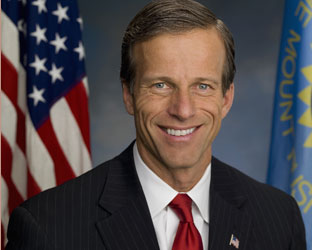 Two Democrats will be exiting the Senate, and likely a third, and for sure, there will be new leaders holding the gavels in both the full committee and the Subcommittee on Communications, Technology and the Internet.
Two Democrats will be exiting the Senate, and likely a third, and for sure, there will be new leaders holding the gavels in both the full committee and the Subcommittee on Communications, Technology and the Internet.
The departure of current Chair Jay Rockefeller (D-WV) was a known – he’s retiring – and in his absence from the race, his seat fell to Republican Shelley Capito, who will be moving over from the House of Representatives.
Tom Cotton is making the same move, and in so doing has ousted Democratic committee member Mark Pryor.
As of this writing, Alaska Democrat Mark Begich also appears to be on the way out.
John Thune (R-SD) is poised to take over the chair, and Roger Wicker (R-MS) looks to be the one to replace Pryor as chair of the Communications Subcommittee.
Democrats went into the election with 13 seats on Commerce, to the Republican’s 11. Those numbers should reverse next year when the next Congress is seated.
Below are John Thune’s positions on communications and technology issues, from his website. In Wicker’s case, he lists positions for 16 different issues but none are related to either topic.
John Thune positions
Communications and Technology
South Dakotans today are more connected to the rest of the world than ever before, thanks to modern communications technologies. We increasingly rely on communications and technology to stay in touch with loved ones, to stay informed about what is happening in our community and around the world, and to succeed in today’s global economy. My position as Ranking Member of the Senate Commerce, Science, and Transportation Committee allows me to promote polices that foster competition and innovation while working to keep federal bureaucrats from getting in the way of the entrepreneurs who make this all possible.
FCC Oversight and Universal Service
The Federal Communications Commission (FCC) regulates our nation’s vast communications infrastructure and administers the Universal Service Fund (USF). Because of USF’s critical role in ensuring broadband connectivity for rural South Dakotans and the FCC’s broad regulatory authority, it is important that Congress is diligent in exercising its oversight of the agency. From my leadership position on the Commerce Committee, I will continue closely monitoring the FCC’s activities, including its on-going modernization of USF.
Free and Open Internet
Like all Americans, I support a free and open Internet. While some argue the federal government should have a larger role in regulating online services and activities, I believe the Internet has succeeded in large part because of the government’s historical ‘light-touch’ approach. The last thing the Internet needs is for bureaucrats, at home and abroad, to have a larger role in dictating its future. I will continue fighting for the Internet by working toward commonsense policies appropriate for today’s digital society.
Cybersecurity
American businesses continue to invest in cutting-edge solutions to combat cyber threats. While many companies lead the way in cybersecurity innovation, it is critical Congress act to strengthen protections by working with companies to develop a public-private partnership to counter cyber-attacks. I have worked with Commerce Committee Chairman Jay Rockefeller on bipartisan legislation to develop voluntary, industry-led best practices and standards to improve cybersecurity. Combatting this growing threat also means working to strengthen workforce development and education, and increasing public awareness and preparedness, which our bill would do. I am committed to working with my colleagues and industry stakeholders to improve our nation’s cybersecurity.
Wireless Spectrum
Consumers increasingly rely on their mobile devices to access the Internet and connect to the world. Unfortunately, wireless connectivity is not where it can and should be in many parts of South Dakota. In 2012, I supported legislation that will free up additional airwaves, known as wireless spectrum, that fuel the significant increase in mobile devices. And as Ranking Member of the Commerce Committee, I played a key role in pushing the federal government to reallocate some of its excess spectrum for use by consumers and the private sector. By freeing up more spectrum, both licensed and unlicensed, I hope to see strengthened wireless connectivity throughout the state.
RBR-TVBR observation: The interesting thing about broadcast issues on Capitol Hill is that it is often the case that party affiliation is a non-factor.
That’s because many of the issues are not the big business v. consumer type for which you can pretty much find the fault line down the aisle that separates the two parties.
Quite often, the issues are business v. business. The biggest lately have been broadcast v. recording companies, broadcast v. MVPDs, and when it comes to the incentive auction, broadcast v. telcos with the current FCC chairman seemingly resident in the telco camp.
For these types of issues, support and opposition tends to cut across party lines, and all partisan bets are off.





